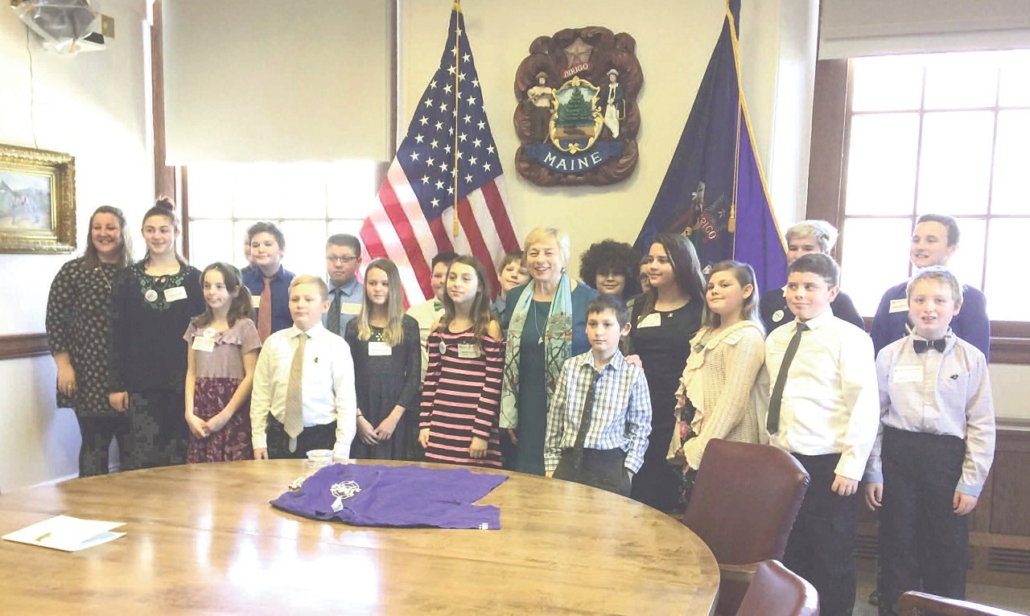Vassalboro selectmen spent most of their short March 21 meeting talking with residents about the proposed hike in sewer fees, a topic that came up again in the following discussion with the budget committee.
More than a dozen Vassalboro Sanitary District customers came to protest the higher rates needed to fund the connection with the Winslow sewer system. When the project is completed, sewage from East and North Vassalboro will run through Winslow to the Waterville treatment facility, and the Vassalboro District will close the aged sand filter beds currently treating the villages’ sewage.
Christina O’Rourke, from North Vassalboro, and others said Vassalboro already has the highest sewer rates in Maine, before the proposed increase almost doubles them. Many of the 192 customers are behind on their bills.
The increase will cause some residents to consider moving while making their houses harder to sell, people said.
They asked for an article in the June town meeting warrant requesting tax money to help the Sanitary District. Selectmen explained the petition procedure to put an article on the warrant.
In past years, selectmen have given money from Vassalboro’s TIF (Tax Increment Finance) fund toward the Sanitary District project and toward ARI (Alewife Restoration Initiative). The TIF fund collects the tax money from the gas pipeline that runs through Vassalboro and sets it aside in a state-regulated program that allows it to be used only for economic development projects.
When the budget committee met, ARI representatives Landis Hudson and Nate Gray asked its members to continue supporting ARI, which is intended to allow alewives access to China Lake. This year’s projects are building fishways at the Ladd and Box Mill dams in North Vassalboro.
ARI has already overseen removal of the Masse dam, in East Vassalboro, and the Lombard dam between the two villages. Only the Morneau dam, which Hudson said is under discussion, and the China Lake Outlet dam, where a fishway is planned, remain as obstacles.
Alewives currently running into and out of Webber Pond are harvested each spring and sold for lobster bait. Town Manager Mary Sabins said until last year the town had been earning around $18,000 annually; last year, a higher price increased the amount to more than $25,000. Gray predicted the run into China Lake would be significantly larger, so once state officials are satisfied that it is self-sustaining, Vassalboro can expect more income.
Selectman Lauchlin Titus suggested taking funds for ARI, if voters approve them, from alewife income, leaving more TIF money for the Sanitary District.
Budget committee members also heard from representatives of the Vassalboro volunteer fire department, the Cemetery Committee and the China Region Lakes Alliance (CRLA).
Firefighter Mike Vashon said the department’s two-year reroofing project at the Riverside fire station will slightly exceed the $25,000 budgeted, judging by preliminary information. A bid opening is scheduled for Wednesday, April 3.
Vashon said the department is applying for grant money to buy new Scott air packs and a new fire truck. Some of the department’s current air packs are old enough so they could fail when a firefighter is inside a burning building, and a 38-year-old fire truck has already cost a lot of money for repairs and now needs a new radiator.
The department welcomes donations to be used as matching funds if a grant is awarded, Vashon said. The Sukeforth Foundation has already assisted.
Cemetery Committee spokesperson Jane Aiudi said the committee’s increased budget request is intended to cover tree removal, not done for the last four or five years, and purchase of a software system to inventory and maintain cemetery records. She and Sabins agree that an $8,000 system is most suitable.
CRLA President Scott Pierz presented a four-page document explaining the organization’s request for $14,000 from Vassalboro. Part of the money would support CRLA’s operational costs; the majority would fund a survey around Three Mile Pond to identify gravel roads contributing run-off into the pond, Youth Conservation Corps projects on Webber Pond and Seaward Mills Stream and the Courtesy Boat Inspectors at the East Vassalboro boat landing, whose job is to protect China Lake from invasive plants.
The next budget committee meeting is scheduled for 7 p.m. Thursday, April 4, at the town office, after that evening’s 6 p.m. selectmen’s meeting.









